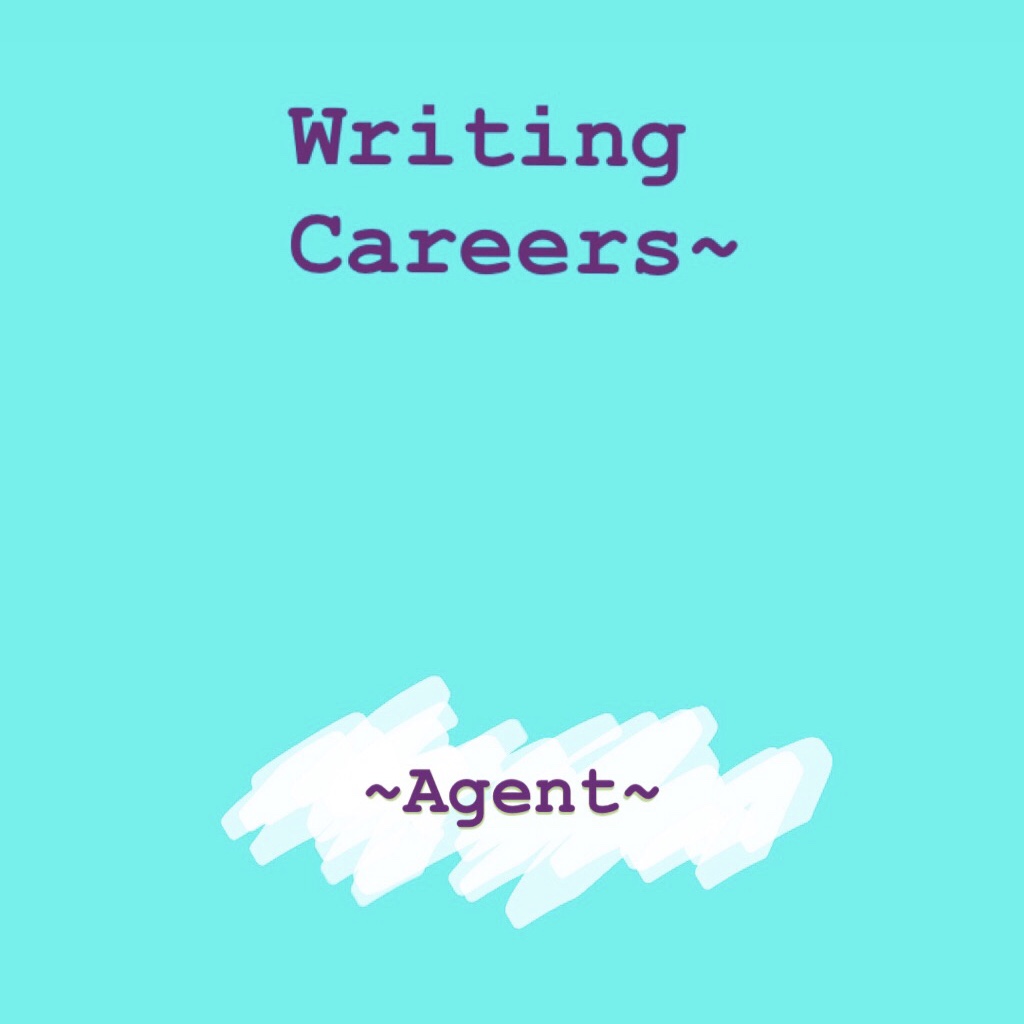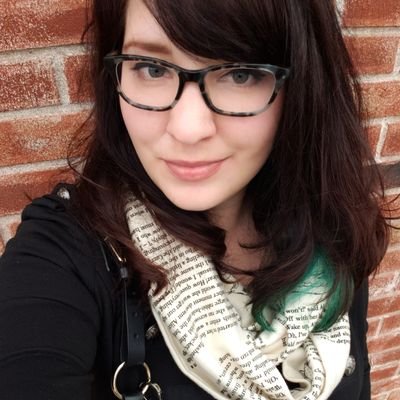
Are you passionate about books and reading? Do you want to be part of bringing quality books into the world? Is it easy for you to talk to others about books you enjoy? Are you able to get them interested in reading your favorite books? If so, a career as a literary agent might appeal to you. Scroll down to read more about what it’s like to be a Literary Agent from the phenomenal Jennie Kendrick of Red Fox Literary!
How did you get started as a literary agent?
I have always wanted a reading-and-writing-centric career, but I didn’t realize that I could be a literary agent until well into my twenties. I was a history major in college (which I loved), and then I went on to law school. Since I graduated at the height of the recession, I did a lot of contract legal work until I started picking up freelance writing work.
I actually got this job because I was/am a book blogger reviewing books for adult fans of YA. It’s a passion project: we love YA, but we also work closely with publicists, trade magazines, and authors. That’s how I met the first person who hired me as a literary agent: through an author we worked with. She asked if I’d ever thought about agenting before. The truth was: yes! But I had no idea how one broke into the field, so I’d never really pursued it until then.
What is a typical day like?
There are many different kinds of literary agents. Some are able to make a living as a full-time agent. Some are new and juggle multiple jobs while we try to break into the industry full-time. I’m the kind who is still pretty new, so it doesn’t pay all my bills yet—that’s my long-term goal.
For me, a typical day is all about balance. I spend a few hours of my weekend making plans for the next week, depending on what I need to do for my other jobs. Once I have that settled, I know exactly what I’ve got to do each day to make sure I meet all my deadlines. Then I can focus on my writing clients.
But what a typical workday is actually like? Well:
- One major chunk is devoted to email, whether I’m answering editors who have sent passes, comments, offers or otherwise, sending manuscripts to editors, reading industry news and agency news from my co-agents, and of course, answering any questions and concerns from my clients.
- If I have a manuscript that I’m about to send to editors, I can spend hours trying to figure out who might want to acquire it. Actually, that can be an entire workday—I research who they are, what they like, what they’re looking for, and what my agency database says about their preferences.
- If I’m currently negotiating a publishing contract, that’s another hour or so.
- Another major chunk is often devoted to editing my client’s manuscripts, including the next book they’d like to send out. Not all agents help their clients edit, but I do. Most of that is because I want to put out the most polished product possible when we send their books to editors. It’s an extremely competitive environment. (I’ll never complain about getting to read early copies of books, either!)
- I might also have an editor call scheduled, which is when an agent and an editor talk to each other about what they love to read and acquire. This is one of my favorite parts of the job, which surprised me.
- I spend the least amount of time reading new submissions. I am generally closed to new submissions right now, but I almost always have an epic backlog to read from conferences, pitch contests, and referrals.
- Occasionally I am invited to conferences or other speaking engagements. This ranges from giving talks about what the children’s literature market looks like, to listening to manuscript pitches. Working remotely can be isolating, so this is a really nice way to meet the humans behind the queries.
Things would likely look a lot different if agenting was my full-time job! But that is how I currently handle an average workday.
What training, education or preparation would help prepare someone to be a literary agent?
My background is unusual for an agent, from what I understand. (Apparently you can earn a degree in publishing now! I wish I had known that when I was in school, although I loved history and law.) I’ve heard that plenty of agents—including a few of Red Fox Literary’s agents—have worked as editors. But there’s no single way to break into agenting. I think the most important thing is that you have a true love of reading and whichever kind of books you want to represent.
What skills do you think help you do your job well?
You’ve got to love to read—and it helps if you can read fast.
You should know your market. I read as many YA and MG books as I can, so I know what’s selling and how to compare my clients’ books to what’s already out there. I also go to conferences and read “craft” books—that is, books on the craft of writing—to get tips on how to help my clients when I edit.
I spent a lot of time both as a trial attorney and teaching law students to be trial attorneys, so I can identify the theme of a manuscript and a hook a mile away. The common thread there is being able to pinpoint universal experiences and feelings, then communicating those big emotions and ideas in a very specific way. I’m also no stranger to contracts and legalese, which helps with contracts.
The last major thing that helps me, I think, is empathy. You have to understand that when people send you their work, they are baring their souls. If you need to give them a pass, it probably isn’t personal to you. But it’s always going to feel personal for them because their work is inherently personal. You do a lot of rejecting as an agent—but you can do it in a kind, gentle, constructive way that may help them edit their work or find a better agent fit.
You don’t need to have a thick skin to start out with, though it helps. You’ll develop one.
What type of person would be a good fit to be a literary agent?
It’s helpful if you’re analytical, really love books and your target audience (for me it’s children 0-18, plus select adults), and kind. Your reputation is everything.
What are the down sides of your job?
I hate rejecting books and receiving passes for my clients. We all know it’s a part of the job, yet it’s still hard to have our hopes dashed. But there are so few “slots” available at each publishing house that having a book published is a major deal.
The other major downside is that publishing is slow. Say you’re my client: you might be “out on submission” (meaning I’m sending your book to editors) for over a year. If you get a book deal, your book probably won’t be published for two more years after that. So, if I sell your book in 2019, I won’t expect your contract to be finalized for another 3-6 months, and it’s not going to be published until 2021.
Also, we don’t get paid right away! I get a percentage of whatever the publishing house offers my clients. Those payments are usually split between what you get upon signing the contract, and then what you get when the manuscript is “formally accepted” by your editor. It gets easier as you and your clients build a reputation and you sell more books, but it’s not a job you can jump into and expect to pay all your bills immediately.
(But if you do, please, tell me your secret!)
What are the up sides of your job?
I help books find their way into the world!
An agent gets to help books find their perfect readers, but more specifically, I know exactly how that book would have resonated with me when I was a teen. I know I’m helping someone out there feel like they’re less alone, even if it’s something as simple as being interested in a particular kind of history.
Plus, there is nothing better than getting to surprise your client with THE call, the one where you tell them that oh hey, they just got a book deal. I get to witness people’s dreams coming true, and that feels so good.
Even if a book doesn’t sell, I still get to read and edit something that means something to me—and I can tell you that every single one of my clients’ books has made me cry in a good way.
What resources, professional journals, organizations or social media sites keep you informed about your industry?
- Publishers Weekly is the biggest trade magazine for us, and Publishers Marketplace is a treasure trove of information.
- Book Twitter is great: I use it to find out what editors are looking for (#MSWL), what’s selling, what people are excited for, and for pitch contests like #DVPit and #PitMad.
- I belong to the Society of Children’s Book Writers and Illustrators (thanks to my agency), which often host conferences and workshops.
- I read (and occasionally write for) Kirkus, as well as reading the reviews in School Library Journal and Booklist.
Any words of advice for people interested in this job?
Be an intern! You’ll get a feel for the exciting parts (reading submissions, chatting with editors, signing clients, negotiating contracts), but also the less fun stuff like paperwork, taxes, giving thoughtful rejections, and more. A lot of agents work remotely, myself included, so you may be able to figure out a way to do it even if you don’t live in NYC.
Also, work, intern, or find friends in as many different publishing-related jobs as you can. I’ve worked as a bookseller, agent, and reviewer, and have friends in editing, marketing, contracts, and sales. It really helps you understand how the whole industry plays a part in your work.
Finally, you’re always welcome to talk to me.
If readers have follow up questions, what is the best way for them to reach out to you?
Readers are welcome to email me at jennie@redfoxliterary.com, but please know it may take a little bit before I can respond.

Jennie Kendrick represents YA and MG with Red Fox Literary. A former criminal defense attorney and history major, she has worked in the publishing industry for years, including work with Forever Young Adult and Kirkus. Jennie is also a part-time bookseller at a local independent bookstore. Jennie’s passions include history, the criminal justice system, art, rock music, and cooking. She loves well-researched character-driven fiction, narrative non-fiction, and is particularly looking for Own Voices works.

